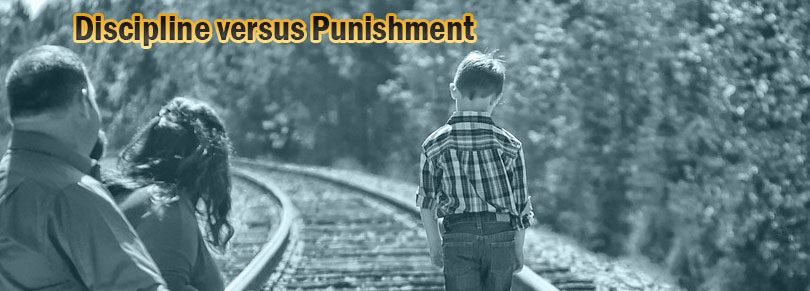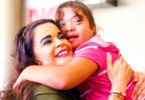Hot fumes of wild anger stirred inside me waiting to explode. Just in time,the words from the book, ‘Liberated Parents, Liberated Children’ by Adele Faber and Elaine Mazlish,flashed across my mind; “describe what you see, describe what you feel”. I managed to firmly say “I see handprints on the wall. I feel mad when this happens ”.
My daughter rushed into the room and apologized for what she had done. In a composed voice I explained that walls were not to be painted on. I asked her to sit quietly by herself and practice some cursive writing, instead of the promised doll- making session we had planned together. Phew!
By merely lashing out I would have given birth to feelings of revenge and guilt in my little girl, without causing the necessary change in behavior. By describing what I saw and felt, I had stopped myself from launching out in anger and saved my daughter from being hurt deeply.
In this article, we will explore the fine line separating ‘punishment’ and ‘discipline’ and look at five tips to help discipline our children better. Dr. Bruce Narramore, Ph.D., author of ‘Help! I’m a Parent’ illustrates the difference between punishment and discipline (see table)
| Punishment | Discipline | |
| Purpose | to inflict penalty for an offense | to train for correction or maturity |
| Focus | past misdeed behavior | future correct deeds |
| Attitude | hostility and frustration | love and concern |
| Resulting Emotion | fear and guilt | security |
Let us look at some methods of discipline which can help us trudge this rocky path of parenting.
- Describe
This is one method which must be part of every parent’s toolkit and is useful both in discipline and in praise. For example, your child has left the bathroom door open after use. A typical response is “How many times have I told you to shut the door after you use the bathroom! Are you deaf, or something?” The next time this happens at home, try describing what you see. A good response would be “The bathroom door has been left open”. Your child will respond by coming to close it, her self-esteem intact.
Describing the problem enables the child to respond positively and correct her behavior. - Remind with a word
Your three year old repeatedly forgets to put his milk cup into the sink after he’s done. Psychologists explain how a child’s mind is still immature and that they need gentle reminders every now and then. Remember your child is not an adult yet, and it is your role as a parent to help him in this journey. So the next time he forgets, you could say “MILK CUP”. You will most likely see him scurrying to the kitchen to keep his cup back. - Let ‘natural consequences’ follow
The law of ‘natural consequences’ can be applied in many situations. Dr. Rudolf Dreikurs, co-author of ‘A Parent’s Guide to Child Discipline’ describes ‘natural consequences’ as “simply allowing nature to do the job”. For example, when my son was two years old, he chanced upon a small bag of green chilies, and I warned him that it would burn his eyes if he handled the contents of the bag. But he was too busy with his new discovery to pay heed to my warnings. It didn’t take too long for nature to replace me as parent. My son’s face soon turned red and itchy, his eyes started watering and he began yowling in pain. My heart ached for my little one as I helped him wash his face and hands. He has never in the years that followed cared to repeat the folly. In Dr. Narramore’s words,
“By allowing nature to do its job we completely avoid a power struggle”. - Set the limits, communicate
Many times parents do not take the time to clearly state what acceptable behavior is, and to list out the consequences of misbehavior. This causes misunderstandings between parent and child. For example, a mother watches her precious jewelry being tried out by her twelve year old. The mother doesn’t like it, but keeps quiet, until – her precious pearl set crashes to the ground breaking into many tiny pieces.The mother now flares up and all hell breaks loose. The twelve year old is confused. She saw her mother watching her play and misread it as approval. Instead the mother should have clearly stated that the jewelry was out of bounds, the moment she saw her daughter handling it.
- In praise of praise
Little Arun was playing peacefully with his blocks for a whole hour, while Dad was reading peacefully. Dad barely noticed. After an hour Arun started whining to get Dad’s attention, but Dad grunted discouragingly and continued reading. The whining increased in volume and Dad whacked him hard and sent him to Mum. Why did Arun not receive any praise for his initial good behavior?Arun wrongly learnt that quiet playing does not get Dad’s attention so he chose to whine. Research shows that children relish praise, and grow to be confident and healthy adults if they receive a good dose of praise each day. In conclusion, discipline is hard work, with mutual love and respect between parent and child serving as a firm foundation. In Dr. James Dobson’s words, let us “Dare to Discipline”.






Leave a Comment